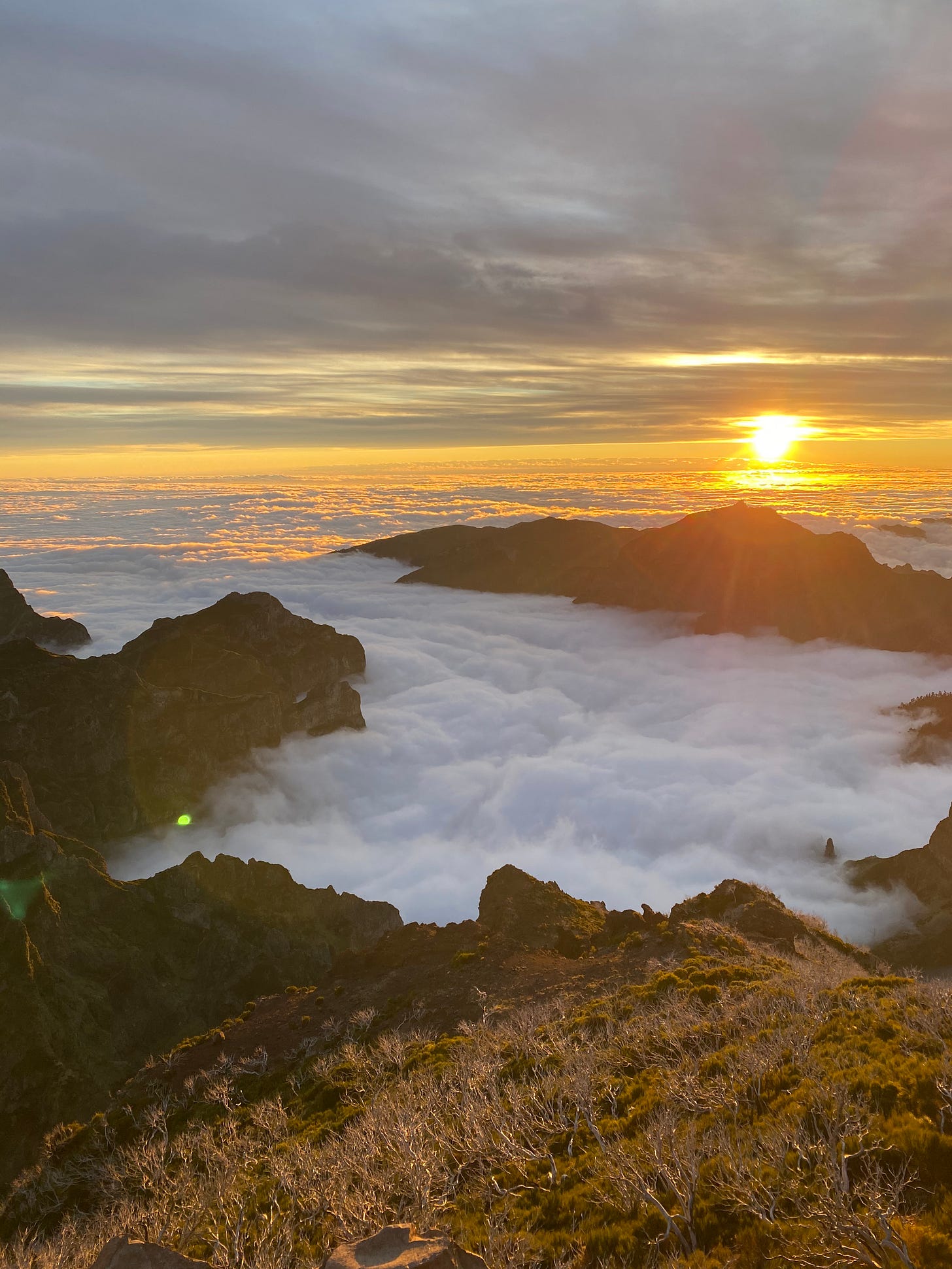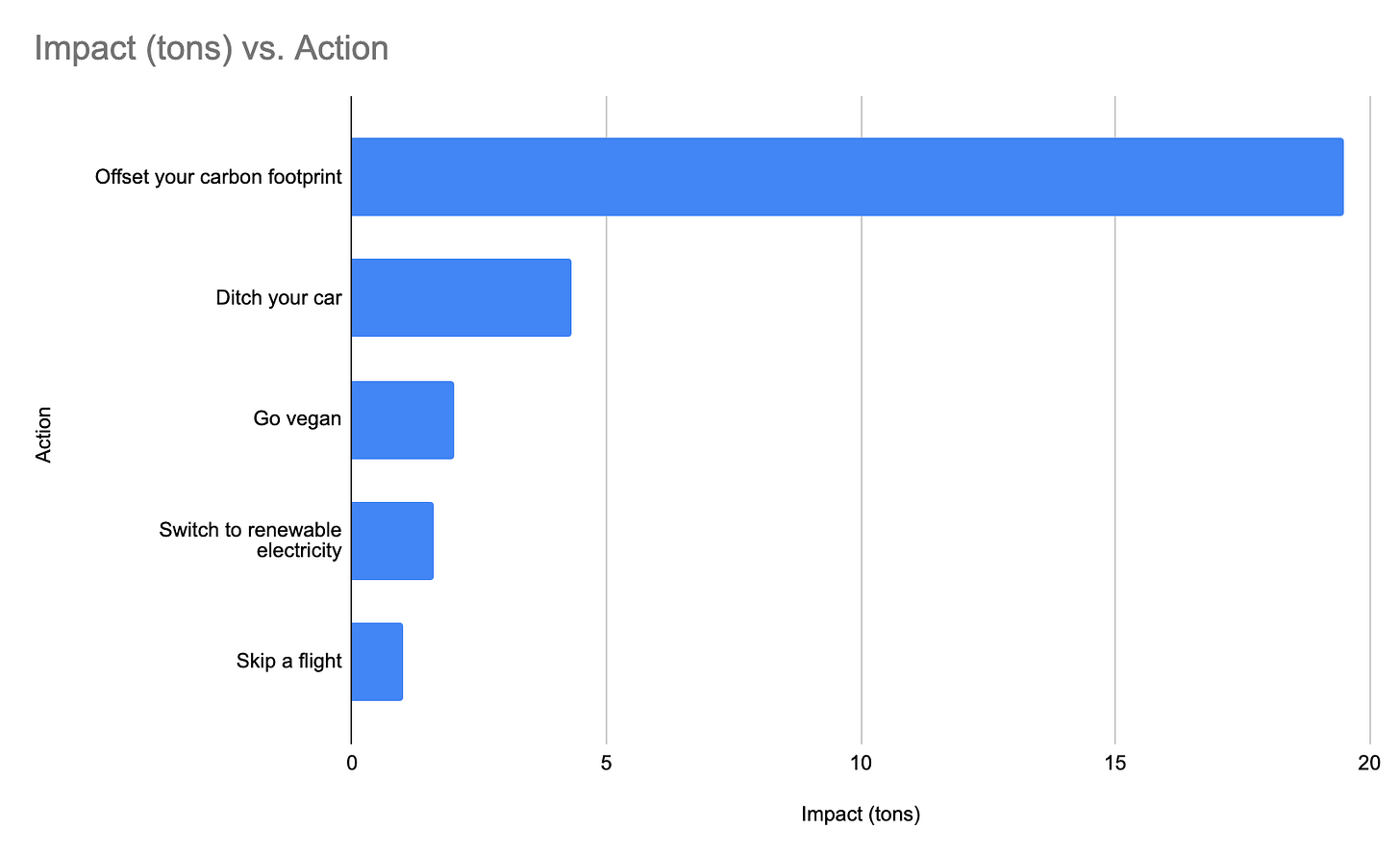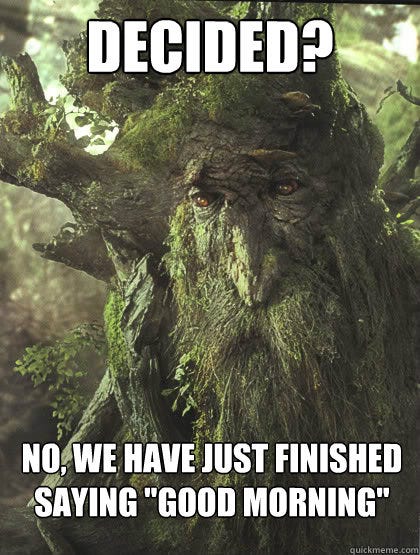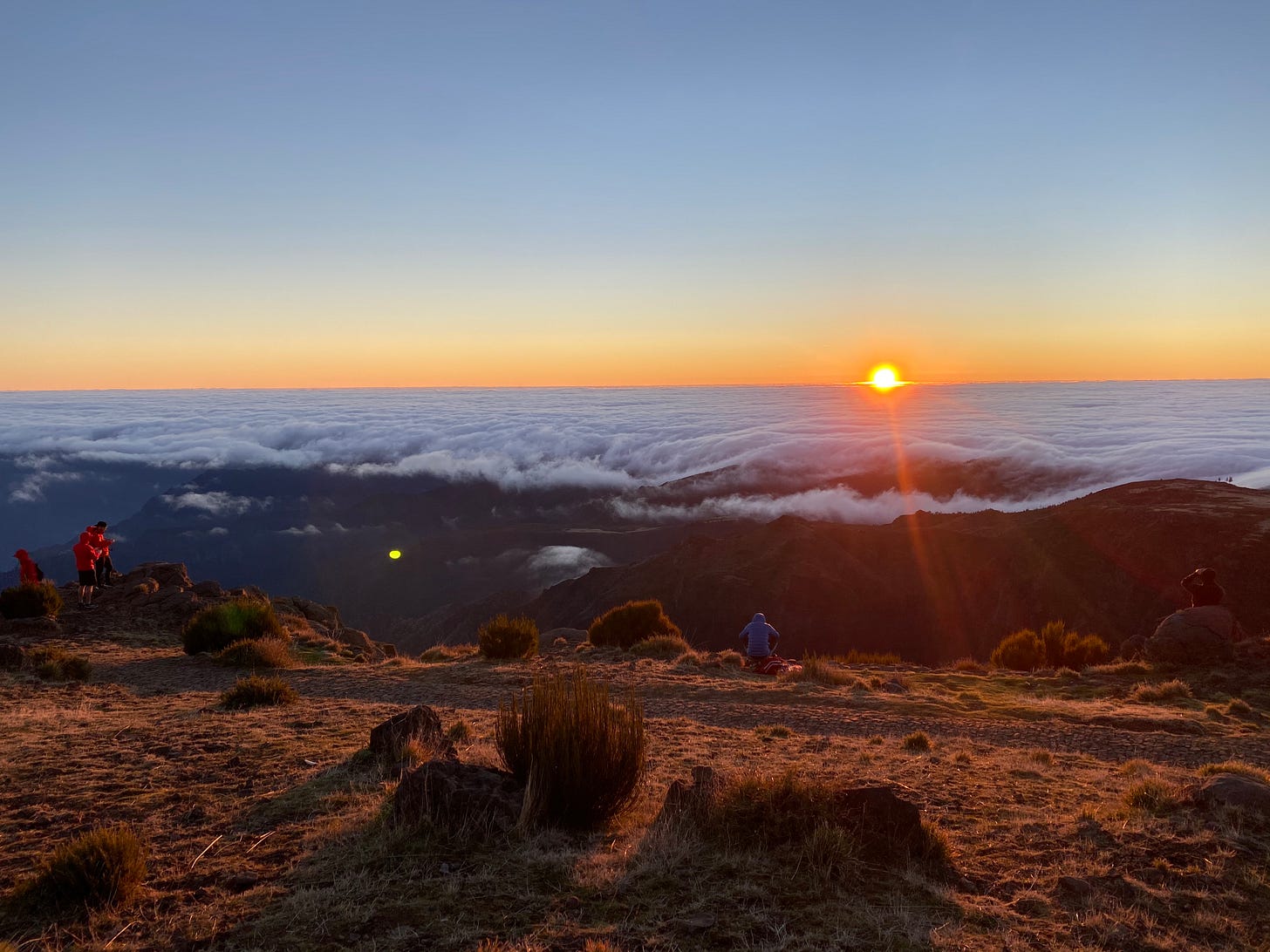Welcome readers old and new. This is one of Thomas Hollands’ notes in his search for ideas which are surprisingly general, or generally surprising. You can find all past issues here.
Something I love #2
Today is my last day in Madeira, one of the most beautiful places I’ve ever lived. And thanks to my iPhone 11 camera, even a terrible photographer like me can capture its beauty fairly faithfully. In the next few issues, I’ll sprinkle some pictures of my travels amongst the prose.

A whole new world
I've done a surprising amount of random shit for a 24 year old.
I had my first job aged 12, as a soccer referee in Minnesota. Child labour is supposedly illegal in the States, but that didn't stop adults paying me minimum wage to get howled at by pallid parents supporting their kids' sporting pursuits from their pitch-side fold-up chairs. I got hooked on the cold, hard, cash paid immediately after every game, and I’ve been working intermittently ever since.
Though I've only really been in the job market for a few years, my work experience spans a few industries: From agribusiness to teaching, academic research to ski tourism, asset management to supply chain planning. Unfortunately, most of them bored me. (It’s why I kept jumping around.)
But finally, after working more than a dozen jobs over the past few years, I've found a project I'll be happy working on for the next few years.
I'm delighted to share that I've joined Wren as their second employee!
It's a big departure from my previous path (management consulting), and there are two questions to explore: Why did I join a startup? And why did I join this startup?
At some point, I'll write about how I "broke into tech" from an ~~unconventional background~~ (If you want me to do this sooner, let me know). But this post is about the future, not the past.
Today I'll write about what Wren is, and why Wren's product is important for the world (and why if you can, you should immediately subscribe to it). I'll also cover what I hope to achieve with Wren over the next couple of years.
I’m trying out a new format today: punchier bullets instead of longer essays. If you prefer one or the other, let me know.
What is Wren?
Wren is a startup that makes it easy for you to do something impactful about the climate crisis.
On Wren, you can find out your carbon footprint using a simple, easy-to-understand calculator.
Then, you can erase your climate impact by subscribing to fund high quality carbon offset projects from around the world.
Every month, Wren sends you updates filled with data about your personal climate impact. And you can read stories and see behind-the-scenes of the projects you're supporting.
Wren members form a global community of carbon neutral people. And our climate impact is already the size of a small country: Wren has offset about 50,000 tons of CO2 – roughly the carbon footprint of Lichtenstein.
How I discovered Wren
I first came across Wren over a year ago, in James Clear's 2019 annual review.
He described his year on the road, travelling around the world to promote his new book. He took over 100 flights, and felt enormous guilt for the climate impact of his travels.
This resonated with me. I've been lucky enough to live in many different countries, and travel a lot as a kid. But regularly visiting family from abroad results in a big carbon footprint.
And over the past two years, I've been in a long-distance relationship, too. I need to cross oceans to see the woman I love. I don't regret flying to see S, but I felt guilty about my impact on the climate. And the more I travelled, the guiltier I felt.
James mentioned he offset his emissions with Wren, and that it wasn't as expensive as he expected. I was intrigued, and checked it out. It was simple and effective, but there was one small problem.
I'm a lot poorer than James is. At $20 per month, I couldn't afford the whole shebang. But I decided doing something was better than nothing at all. I've been offsetting 50% of my carbon footprint on Wren ever since.
When my first pay-check comes in, I'll double my contribution and finally go fully carbon neutral.
Why carbon removal is very important
We'll only solve the climate crisis by making it easy and cool for individuals to have a real impact in the climate crisis. Wren makes it easy, and hopefully we’ll also make it cool too. Here’s why this matters:
There are three big players arguing in the context of the climate crisis: governments, companies, and individuals.
Governments have the most power to do something. They make the rules that companies and individuals play by.
They're also the slowest to do anything. They're lumbering organisations with massive inertia. Once set in motion, they're pretty good at chugging along. But it's really hard to change their direction of travel.
They also spend all day negotiating with one another: making sure each country is doing exactly the right thing, before starting to do the things.
Governments are like the Ents in the Lord of the Rings. They call a big meeting, an Entmoot, and the hobbits Merry and Pippin think a decision is imminent. But by the time night has fallen, the Ents have only just finished wishing each other "Good Morning."
Unless something absolutely terrible happens, governments will take too long to act. Their feedback loops are simply too long. But we don't have long to wait. We need to do something now.
The next biggest players are companies. Companies only care about climate change if it impacts their bottom line. But they also care a little about their employees, a lot about their customers, and even more about their shareholders.
Guess what? Employees, customers and shareholders are all individuals. So to get companies to do something about climate change we need to first get individuals to care about climate change.
When individuals care, they can change the companies they engage with. Customers can demand carbon neutral services. Shareholders can require ESG-compliant investments, and employees can advocate for carbon neutrality from the inside.
So individuals are most important! The only problem is that most individuals are very busy. As Marc Andreesen says: "everyone's attention is already allocated".
The only way to get individuals to do things is to make doing the thing easy and rewarding.
Currently, doing things to help the climate is not particularly easy, nor particularly rewarding.
Going vegan is very difficult. Buying an electric car is very expensive.
But offsetting your carbon footprint only takes 3 minutes, and has more impact on the climate than the most die-hard Tesla-driving vegan.

In fact, it's the easiest thing you can do that has a big impact in the climate crisis.
And it isn't empty virtue signalling either, like slurping up fairtrade mojitos with a pulpy paper straw.
Erasing your carbon footprint puts your money where your mouth is – showing you take the climate crisis seriously means the organisations you interact with will take you more seriously too.
It’s also crucial to end the climate crisis. According to the IPCC, large scale carbon removal projects (like reforestation and direct air capture) will be necessary to keep global warming below two degrees.
And the earlier you start, the more impact you have. By starting to offset your carbon footprint today, you're helping projects scale, bringing the future of global carbon removal closer to the present.
If you're like me, you think the climate crisis is critical, but find activists like extinction rebellion* rather irritating.
If chaining yourself to railings in front of oncoming traffic, or doing interpretive dance on Waterloo Bridge is what counts for climate activism, then count me out of it.
Offsetting your carbon footprint is a non-annoying, non-intense, highly impactful way to do something about the climate crisis. It's open to everyone who can afford Amazon Prime membership.
It's 10x more impactful than going vegan, and only takes 3 minutes.
It's 5x more impactful than driving an electric car, and is over 1000x cheaper.
It's an investment in a hopeful future: a future that isn't wracked with wildfires, droughts, and trails of climate migrants, but is only a slightly warmer version of normal life today.
And if you start today, you help the projects scale, enabling a much bigger impact tomorrow.
If you sign up using my handy referral link, Wren will protect an extra hectare of rainforest for you and me.
Why I personally care about this
Most of the public conversation around the climate crisis doesn't get us anywhere, and I think, is actually counterproductive.
Many of the solutions proposed by activists and in the media are focused on "de-growth": reducing our CO2 emissions by reducing our energy consumption. But De-growth is misguided for at least two reasons:
Degrowth screws the poor
It is hugely unfair to the poorest people in the world.
Almost everyone who champions degrowth has their material needs cared for. It is hubris to think this is the natural order of things. For most of history, human life has been nasty, brutish, and short. Life has only been different for the past 200 years.
Hundreds of millions of people still live without basic energy. It's not that they're off the grid. There's no power grid for them to be on. They subsist based on the energy they can generate by eating food, and building fires. Cheaper energy of any kind is a gift.
People in abject poverty don't care about the environment. They care more about the next meal. But after they make enough money (about $4.5k per capita GDP) to cover their material needs, they begin to care for the environment a lot more.
I strongly believe we should not force everyone to decarbonise. Instead, we should try to elevate the standard of living of the world’s poorest, so everyone has the luxury to care about their environment.
While we increase the prosperity of the poorest countries, it is the West's responsibility, with our post-industrial economy, to decarbonise quickly, and remove as much carbon from the atmosphere as we can. After all – we produced most of it.
Offsetting your own carbon footprint is the easiest way to kickstart this removal process (provided you know that your money is really making a difference – more on that later).
Degrowth is totally unrealistic
It denies the reality of human convenience.
As a teenager, distraught after a breakup, I wrote on my blackboard in my room: "People don't change their behaviour unless they have a reason to." I'm glad I learned this lesson so early.
You can either compel people to change their behaviour by threat of force, or you can try and get them to change their behaviour voluntarily.
Changing people's behaviour by threat of force is usually a very bad idea (unintended consequences!). It's also unethical.
Much better to try and get them to do what you want voluntarily then. You need to make people want to do what you want them to do. There are only two ways to do this: make life easier for them, or make them seem cool.
Voluntary degrowth makes people's lives harder, not easier. Reducing the energy supply makes energy more expensive. Going without comforts is, by definition, uncomfortable. People won't do it unless they're rewarded socially.
Voluntary degrowth has had modest success in seeming cool. Greta's solar voyage across the Atlantic was pretty sick to be fair.
But how many middle class people with only 3 weeks off per year want to spend their entire holiday sailing one way across the Atlantic? Cheap flights to Tuscany will always have this beat.
Humans are consumers, and we'll never stop greedily consuming.
Consumption got us into this problem, and by god it will get us out of it, too.
We just need better alternatives to consume: cheap, clean energy sources, and a way to pay for all the excess carbon we've already dumped into the air.
I'm interested in both kinds of solution – but I'm only suited to work on one of them.
I applied for a data science job at General Fusion, but they weren't interested (and tbh I'd be worried if they were). I also toyed with the idea of retraining as a plasma physicist, to work on fusion directly. But I don't think I could've handled 4 more years of academic bureaucracy.
Working with Wren was the sweet spot: I like writing, get to work in a small team, and literally everything I work on is crucial to the success of the company.
What I hope to achieve at Wren
Make climate writing not terrible
I've been thinking seriously about climate change since 2017, when I started "The Climate Column" at a university magazine. My writing was bad, but the idea was good: make climate writing not terrible.
Years have passed, and the popularity of climate journalism has increased. But I still see the same two flaws I complained of in 2017. Climate journalism either defers too much to the personal authority of scientists, or is too apocalyptic. It's either: "here's how it works, BUT WE ONLY HAVE 12 YEARS TO LIVE", or "look at these pretty pictures of hurricanes and 9 out of 10 scientists approve this message".
There is no good climate writing that explains simply how climate change works and what we can do about it, in an optimistic manner. And I believe there is great demand for this kind of content. I want Wren to become a positive, trusted source, for climate-conscious people: explaining what climate change is, and what you can do about it, as simply as possible. I'm excited to make climate writing not terrible.
Make carbon offsets trustworthy (again)
To say the carbon offset market is dodgy is an understatement: it is rife with fraud. When you click that button on the Easyjet website to offset your flight, what really happens? Well, probably 40% of the money you spend goes to a series of middlemen, before the rest of your money goes to an offset project. What do they do with your cash? You don't know! And EasyJet probably don't know either.
There are several companies trying to make offsets more trustworthy. Pachama are doing this with satellite imagery and machine learning – you can combine the two to account for exactly how much CO2 is stored in each tree. Nori are creating a blockchain marketplace for carbon credits. Every attempt at transparency is helpful, but I don't think the solution needs to be so cutting-edge.
Wren's solution is much simpler.
We send project updates to each subscriber every month. Each update is filled with data about the project they support, pictures of the work on the ground, and stories of the people who are making our home planet a more hospitable place.
We also explain carbon removal technology – whether its planting trees, making biochar, or running enhanced weathering experiments – as clearly as we can.
Finally, we’re as transparent as possible. We have a public offset ledger, a public receipts ledger, and even a public product roadmap (though this needs updating).
We do all this so our subscribers understand how their money is being spent, and can trust it is being used in the most impactful way possible.
Make a respectable dent in the climate crisis
Wren hasn't been around for that long, but we've already offset as much CO2 as a small country. And that's with only a few thousand people subscribing full-time. We're eventually hoping to have millions of subscribers. At that point, we'll be offsetting the entirety of Sweden's emissions – or the combined emissions of South Korea and Bolivia – every year.
We’ll also have jumpstarted a new suite of carbon removal technologies, from tech enabled rainforest protection to fully regenerative agroforestry, which can scale to offset emissions for the rest of the world.
If that's not a big impact in the climate crisis, I don't know what is.
*most of them are fine, but the ones that aren’t get the bad press. They then make most of the public irritated with them, which makes the movement toothless, and useless.






